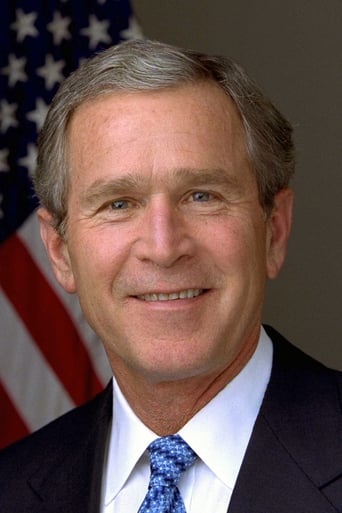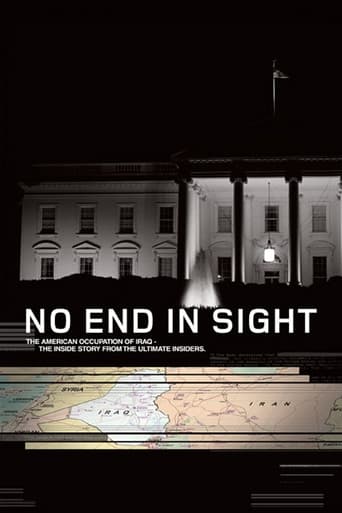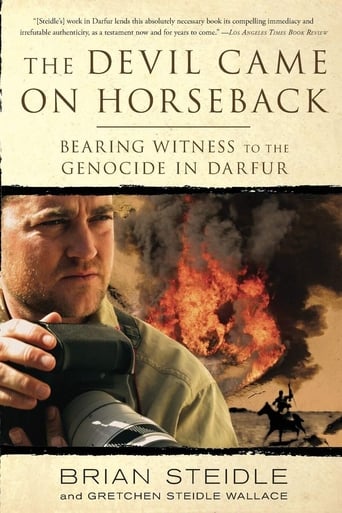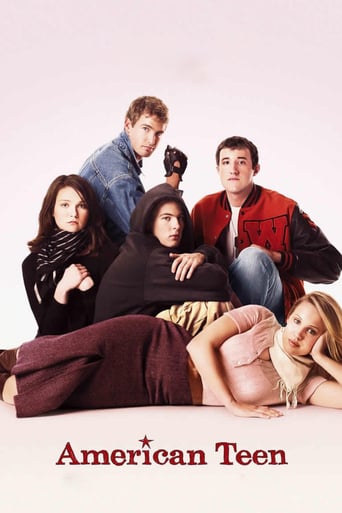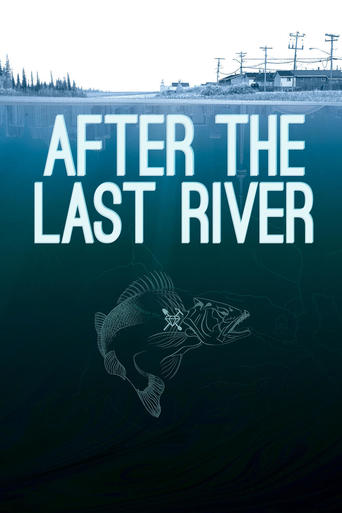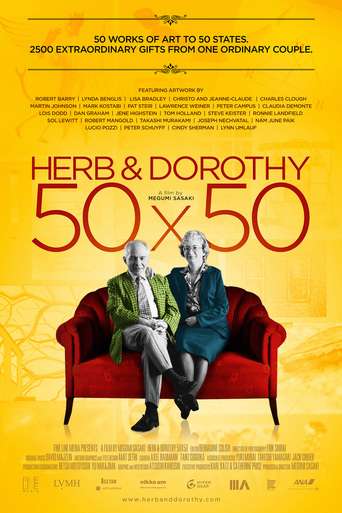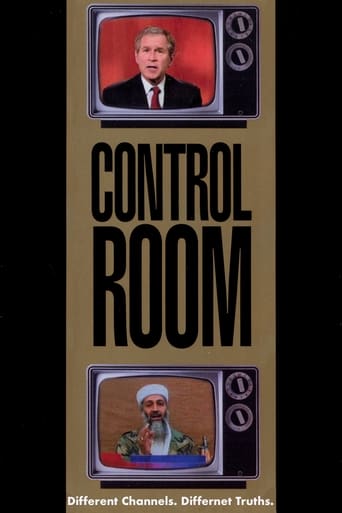
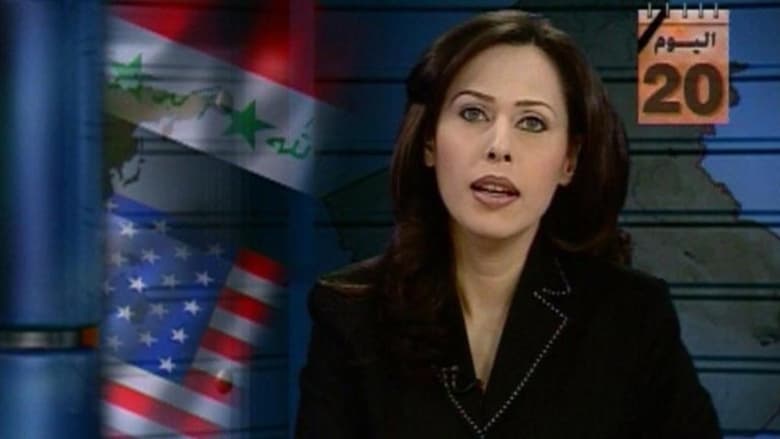
Control Room (2004)
A chronicle which provides a rare window into the international perception of the Iraq War, courtesy of Al Jazeera, the Arab world's most popular news outlet. Roundly criticized by Cabinet members and Pentagon officials for reporting with a pro-Iraqi bias, and strongly condemned for frequently airing civilian causalities as well as footage of American POWs, the station has revealed (and continues to show the world) everything about the Iraq War that the Bush administration did not want it to see.
Watch Trailer
Cast
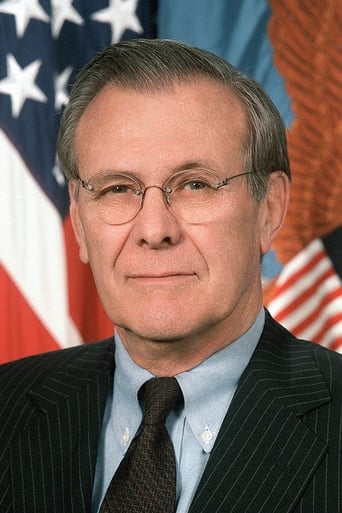


Similar titles
Reviews
When a documentary seems like a movie, then it has succeeded in capturing the audience's attention. It induces the audience to listen to and ponder the story that it is telling and here it is a compelling story, one that has to be told. By cutting through all the propaganda and blasting through all the spin the producers of this documentary provide a frank and comprehensive picture of how news coverage is distorted, depending on who controls the flow of information. And this is directly related to the the question of freedom of the press and how that freedom can be eroded if enough pressure is applied. This documentary also reveals several interesting facts relating to the Iraq War itself and the relationship between western and Arab news media, and their relationship with the U. S. military. Ultimately this documentary is about integrity and about why we must have a free and open press that will keep the public informed and shed light on the actions of the government.
(Note: Over 500 of my movie reviews are now available in my book "Cut to the Chaise Lounge or I Can't Believe I Swallowed the Remote!" Get it at Amazon.)While this is not by any means a prize-winning documentary it is still worth seeing because of the perspective gained. To see the war through Arab/Muslim eyes is what is gained. It is a bit chilling. Most of us watched the war through the eyes of CNN or Fox or PBS or one or more of the networks, and we saw a biased view. The real carnage was withheld from us because it was believed that to show the bleeding and mangled bodies was to (1) inflame opinion (2) give assistance to the enemy.It was almost impossible for an American news source to present the war as it really was. No American network executive could do that. But for Al Jazeera, no such reluctance existed. And that is the value of this documentary: it allows us to see what our own news media dared not show, although that too was only part of the story.Filmmaker Jehane Noujaim uses interviews and footage from inside Al Jazeera's "control room" and footage from the communications center of the coalition forces to show how the reporters worked. Reports from the US authorities, Rumsfeld and the generals, the media officers in the field and at the communications center, are contrasted with actual footage and reports from Iraq. It is clear that the news was managed by both Western services and by Al Jazeera to conform to the expectations and interests of their differing audiences.Frankly I was surprised that the bias wasn't greater (on both sides). I came away feeling that, given that modern wars are won or lost to some extent by how well the combatants manage the news, this war within a war was a toss up. And indeed despite Bush's declaration of victory aboard the aircraft carrier, the war on the ground as it exists today is still very much a toss up. Coalition forces roared into Iraq and found very little resistance. And then began the insurgency. What does it mean to win? How does one side lose? As in Vietnam, victory or defeat is to some extent in the eyes of those watching. In the field there was and is no victory. There is only carnage. And so the combatants try to spin the war to their advantage, because it is in the spin that one may find victory regardless of what happens in the field of battle. In this case, Saddam Hussein and the insurgents had no media. But the Muslim/Arab world needed such a media, and thereby arose Al Jazeera to spin the other side. This documentary affords us a quick look at that network.However I don't think this documentary was very effective. It lacked focus and continuity. It seemed hastily thrown together. We are shone some interviews, some on-camera reportorial and editorial activities, some footage from the field, from Baghdad, from Mosul. An Al Jazeera reporter is killed by an American missile. The people at Al Jazeera are deeply saddened and outraged. They think it was on purpose, to "punish" them for reporting what Rumsfeld doesn't want reported, and they may be right; but somehow the loss seems almost trivial compared to the rest of it: the tens of thousands of people dead, the uncounted maimed and wounded, the hundreds of billions of dollars spent like buckets of water poured upon a vast and seething desert. Somehow the "news" of the news reporters themselves seems somewhat irrelevant, almost, I thought, a vanity show. We have the power to report what happens, they are telling us. Therefore we have the power to create what happens.As was famously said, "In war, the first casualty is truth." One thing this documentary does do well is demonstrate the truth of that adage.
When watching the news a person will get only what the media wants to give out. The media wants the people of their country to have pride and to do this the media will only show certain events that would make a person feel great about their country. But not every media network feels that way about leaving facts out about the news.Control Room shows the Al Jazeera news and how they want to show the both sides of the U.S., Arabs war. The U.S. on the other hand only wants to show their side of the war and only their's. Al Jazeera really wants to show the world what is happening in this war no matter how upsetting it could be. Al Jazeera believe that the people have the right to know what is going in their world not just some pieces of a story that the U.S. calls news. The movie portrayed the was not as entertainment but facts that a person should know. "Control Room" shows this through Al Jazeera. But in reality "Control Room" can not seem to be equal on both sides. "Control Room" leans more on the Arab side and seem to discard the U.S. The U.S. only shows one side of the war which I know is wrong but to some extent can not help it. The U.S. is not fighting on their own soil which can be hard to get coverage of the war. The U.S. in fact has never fought on their own soil so the Americans have never been on that side and have know idea what citizens feel or how it affects their country. So the media does not think that they should show that side of the coverage. Also an American news reporter would have a harder time trying to interview and Iraqi than and Iraqi interviewing an American. The fact is just that Iraqi's feel more upset about the war which they have the right too because it is affecting them more. "Control Room" tends to leave that part out. "Control Room" tries so hard to show Al Jaeezar and how they try to portray both sides of the war. But gives no credit at all to the U.S. media. The U.S. media is mention but not in a positive way and that is not the whole facts. Maybe the U.S. media does not know better or believes that they are giving the whole truth of the war. The fact that "Control Room" did not mention that makes me feel like they are not showing both sides fairly and is leaning towards Al Jaeezar. And the "Control Room" should lean more to that side because it is the right way to give news but the fact that "Control Room" does not acknowledge the U.S. American media makes it seem wrong for "Control Room" to complain about the U.S. media when "Control Room" just did the same thing. "Control Room needs to realize that the U.S. media will always be different because the U.S. never had experience what other countries have faced in the war. So then of course the media will be different because that is all they know."Control Room did make really good points about the media. It shows how the media wants to just entertain an audience rather than give the facts of the topic. Sandra Silbertein author of "From News To Entertainment" stated that media is really entertain the public rather than informing them of the news worthy events. How the media of the 911 would only take the drama part to make people be more entertain and want people to keep watching the news. "Control Room: portrays this one hundred percent. "Control Room" wanted to inform the people of the truth of how media is different in other countries and that showing the whole truth of a story especially the war is better than just parts of the news to make their country sound great.
Control Room is an excellent, unbiased documentary about how differently the media portrays the Iraq War depending on which sides they come from. Control Room excellently displays how both the American and the Arab news networks are very different and at the same time, very much alike. Control Room shows the largest and most popular news network in the Arab World, the Al Jazeera Network, in a way not very many Americans have seen before. During the Iraq War, Al Jazeera has been hard at work trying to bring "news" to the rest of the Arab World. Control Room is presented to Americans who have no access to Al Jazeera. The purpose: to inform people the American media censors and filters images to satisfy the patriotic public. Al Jazeera presents news that is contrary to American news. Al Jazeera may present live images of dead American soldiers; Americans may never see as much a coffin. They are two different societies and two very different views on the Iraq War. During the "liberation" of Baghdad American news networks showed a band of liberated Iraqis tearing down Saddam's statue and waving an old Iraqi flag. Al Jazeera claims that his is all staged for the American media to satisfy the American public. Although Al Jazeera and the American news network are contrary to each other, they exist for the sole purpose of satisfying their viewers. Al Jazeera may present dead bodies of American soldiers, but they are only doing it to please their anti-American viewers. Similarly, the American news networks may not show dead American soldiers to please their viewers. Again, during the "liberation" of Baghdad, Americans see Iraqis destroying images of the old regime while Al Jazeera claims that these images were artificial. The media are doing this to please their viewers by showing them what they want to see. The way the author of the documentary chose to present the movie was very unique and ironic. Not a single word was spoken in form of a narrative, but it was a mosaic of interviews and images. It is ironic because Control Room is about the many different perspectives one can have about images, yet the author decided to use images as a narrative. I thought this was a very good use of images because it shows viewers the power of images. Images are so powerful they tell their own story without the need of a traditional narrative. The theme of Control Room ties with David D. Perlmutter's, "Living-Room Wars". Perlmutter's essay is also about the power of images and their effects even on war itself. It can start, stop, or win wars. If Americans were to see the many dead bodies of American soldiers, they would be encouraging their government to stop the war. Using images such as the "liberation" of Baghdad, America can win the support of their people. On the other hand if the Arab World could see the good America is doing, they would not be so anti-American. Overall Control Room is a very informative and entertaining movie. It really does present both sides of the media war well.


